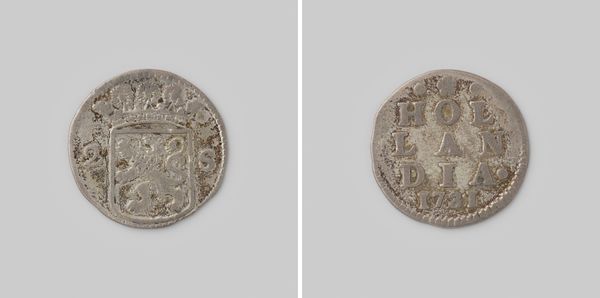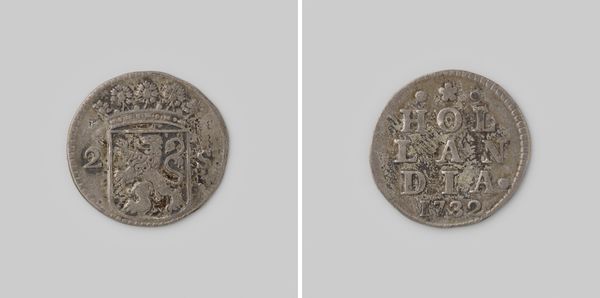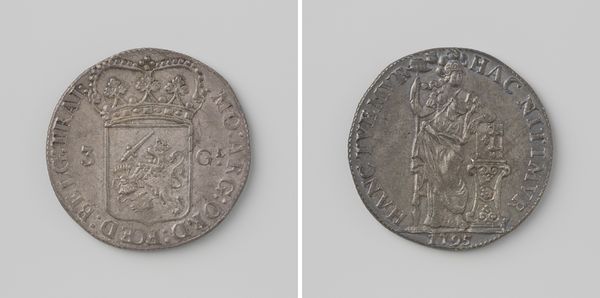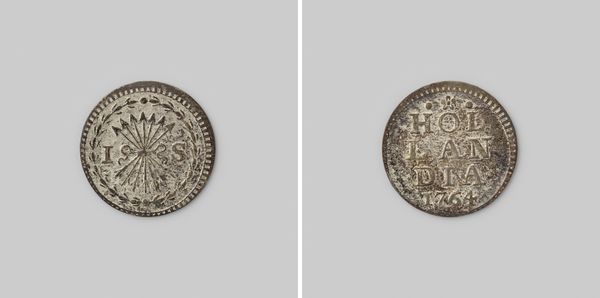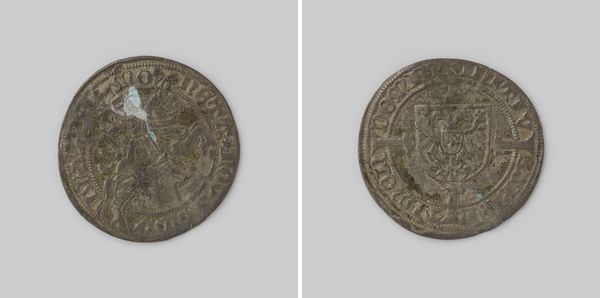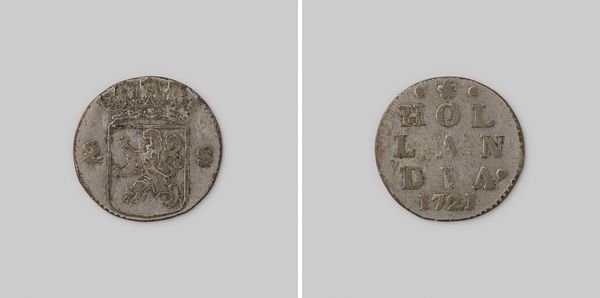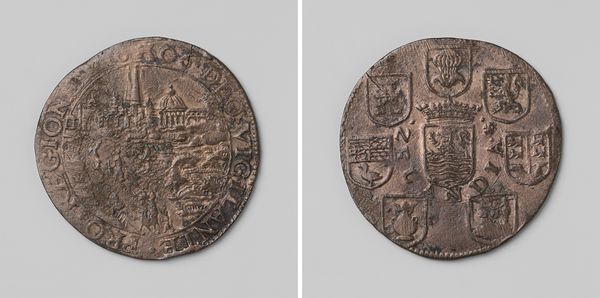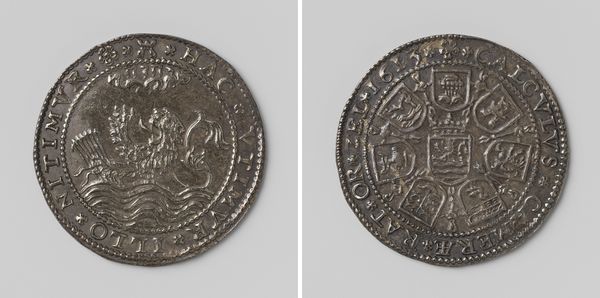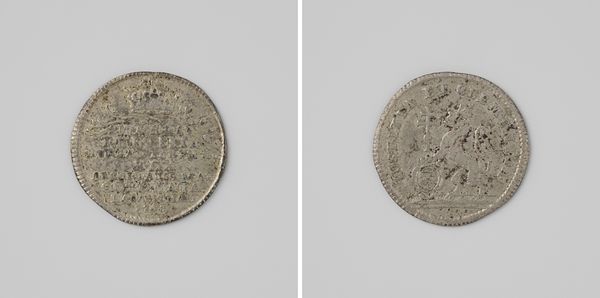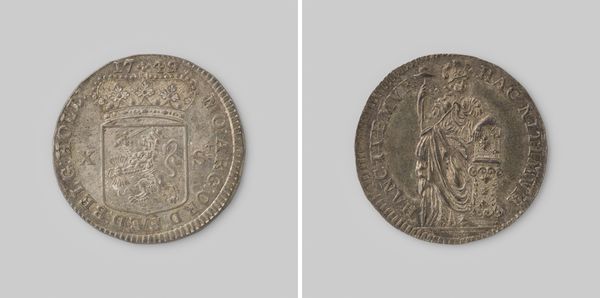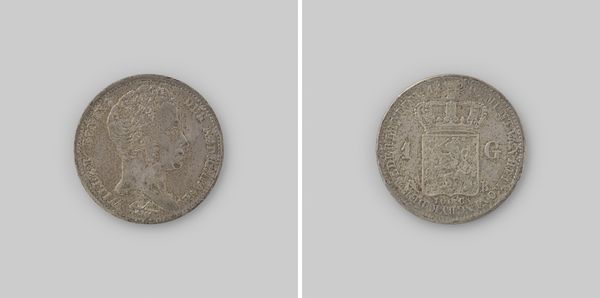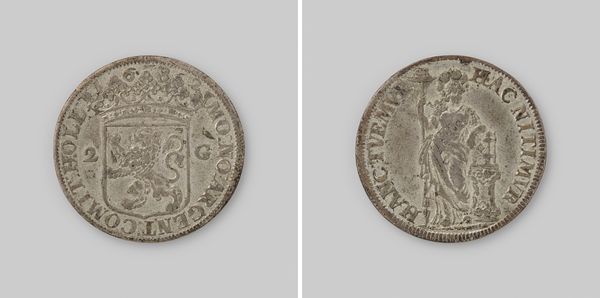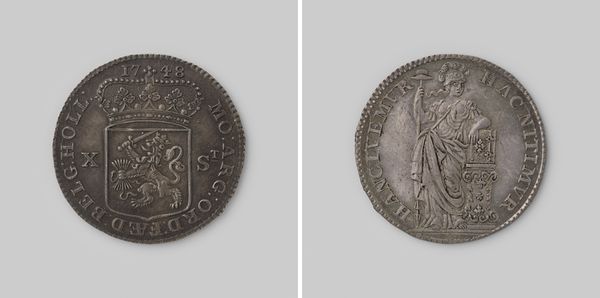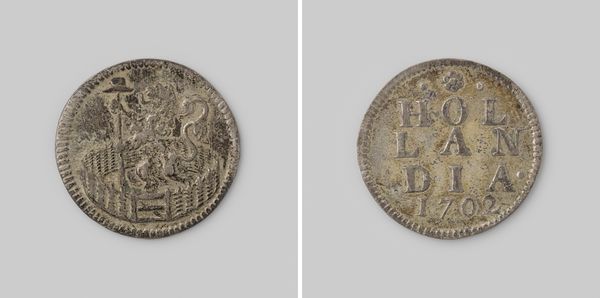
print, metal, engraving
#
portrait
#
dutch-golden-age
# print
#
metal
#
ceramic
#
engraving
Dimensions: diameter 2.0 cm, weight 1.56 gr
Copyright: Rijks Museum: Open Domain
This is a Hollandse dubbele stuiver, a coin made in 1729 by the Province of Holland. In the 18th century, the Dutch Republic was a major economic power, deeply involved in global trade. Coins like this one weren’t just currency, they were symbols of national identity and economic strength. The Dutch Republic's identity was complex. It was a mercantile power, but its wealth was built, in part, on colonial exploitation and the labor of enslaved people. Consider the weight of this small object, what it represents, and the stories of both prosperity and injustice it carries. The images, the lion, the crown, and the lettering were designed to project power, yet the coin itself circulated in a world of unequal exchange, where its value meant very different things to different people.
Comments
No comments
Be the first to comment and join the conversation on the ultimate creative platform.
